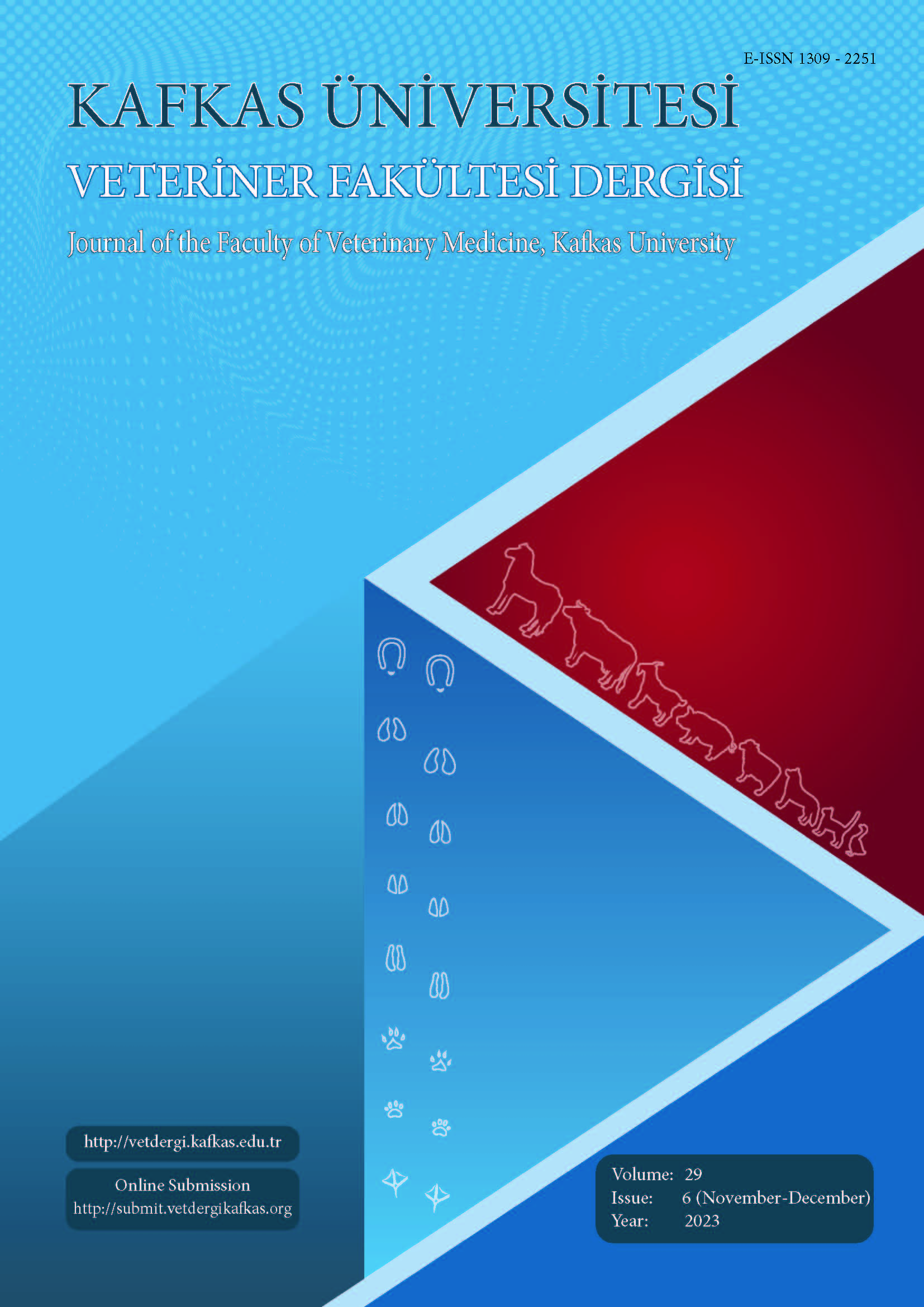
This journal is licensed under a Creative Commons Attribution-NonCommercial 4.0 International License
Kafkas Üniversitesi Veteriner Fakültesi Dergisi
2023 , Vol 29 , Issue 6
Seroprevalence of Coxiella burnetii in Human and Animal Populations in Türkiye: Meta-Analysis
1Istanbul University, Institute of Health Sciences, Medical Microbiology Doctorate Program, TR-34126 İstanbul - TÜRKİYE2Fenerbahce University, Health Services Vocational School, Medical Laboratory Techniques, TR-34758 İstanbul - TÜRKİYE
3Sakarya University, Department of Microbiology, Faculty of Medicine, TR-54050 Adapazarı, Sakarya - TÜRKİYE DOI : 10.9775/kvfd.2023.29953 This study aims to reveal Coxiella burnetii by examining the studies reporting Q fever seroprevalence in humans and animals in the last 25 years in Türkiye. In this study, based on PRISMA (Preferred Reporting Items for Systematic Reviews and Meta-Analyses), various databases were searched between January 1997 and October. 2022. A literature review was carried out using data analyses performed using the IBM SPSS Version 25.0 statistical package program and Comprehensive Meta-Analysis (CMA) program. Overall prevalence of C. burnetii in humans was 22.78% (95% CI: 16.43%-29.12%), overall prevalence in animals was 13.49% (95% CI: 10.04-16.93%) was detected. The mean prevalence of C. burnetii in sheep was 19.1%±10.88, 10.46±6.39% in cattle, 15.21±10.01% in studies including cattle and sheep together, 11.17±10.74 in cattle, sheep and goats, and 12.4%±1.15% in sheep and goats. As a result of this study, it was determined that the prevalence of Q fever in humans in Türkiye is high in those dealing with animals, women who had a miscarriage, and infertile individuals. Although it is known that this disease is seen in Türkiye, there are not enough case reports in the literature. Detailed studies on Q fever in humans and animals need to be conducted. Further studies are needed to evaluate Q fever risk factors and prevalence data together within the scope of One Health approach. Keywords : Cattle, Coxiella burnetii, Infertility, Miscarry, Q fever










